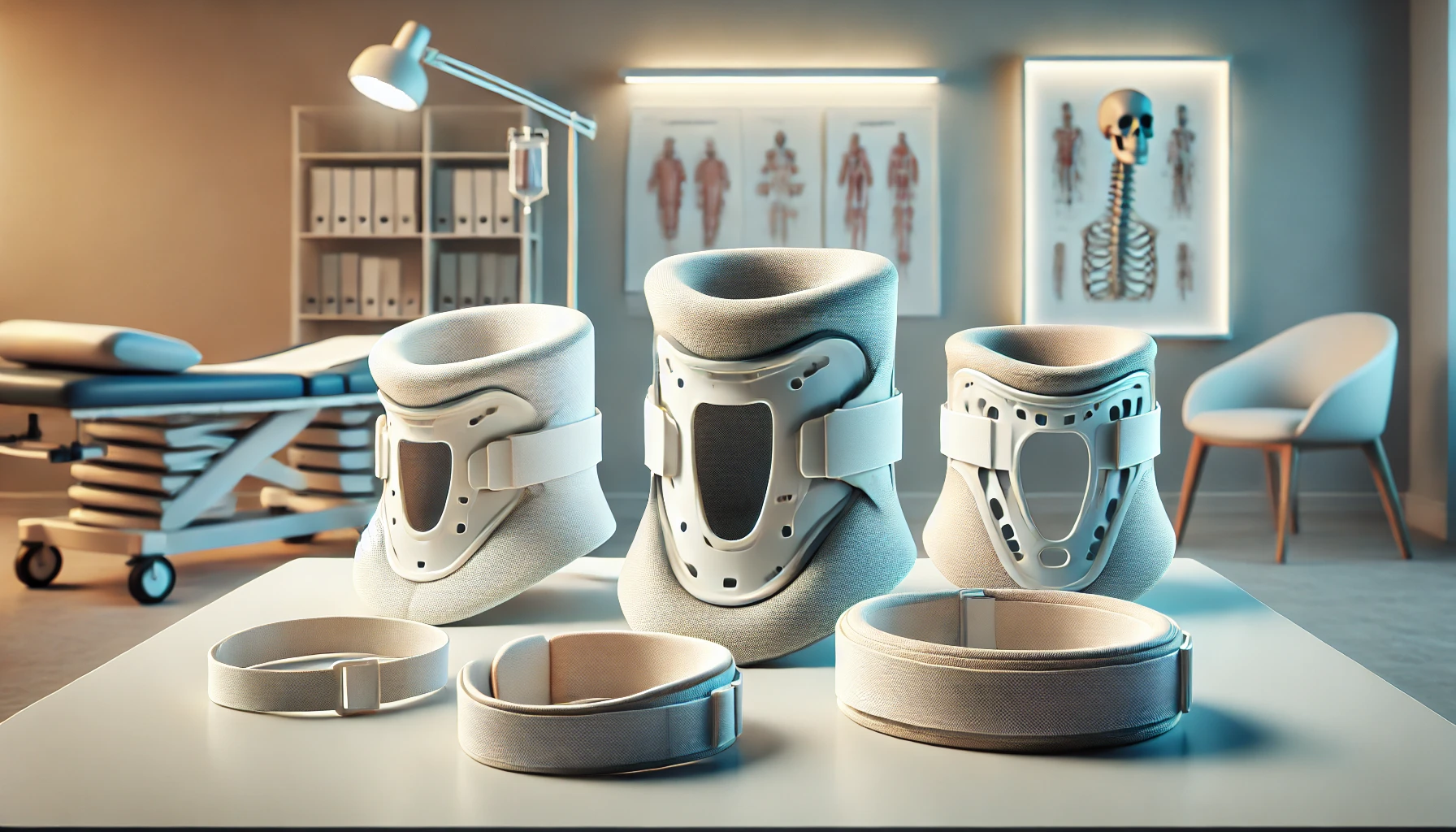Health News
best cervical collar, cervical, cervical collar, cervical collar for injury, cervical spine support, cervical spondylosis, collar, neck brace, neck brace benefits, neck injury recovery, neck pain relief, neck stabilization, neck support, post-surgical neck brace, rigid neck brace, soft cervical collar, whiplash neck brace
Top Cervical Collars for Neck Stabilization and Pain Relief: A Complete Guide
Cervical collars, also known as neck braces, are essential medical devices used to support and stabilize the cervical spine. These collars play a crucial role in injury recovery, post-surgical care, and managing chronic neck conditions like cervical spondylosis or whiplash. By immobilizing the neck, cervical collars help reduce pain, prevent further injury, and promote proper healing.
In this guide, we’ll explore the different types of cervical collars, their specific uses, and how to choose the right one for your condition. Whether you’re recovering from a neck injury, surgery, or managing a chronic condition, finding the best neck brace can significantly improve your comfort and recovery.
Why Use a Cervical Collar?
Cervical collars provide critical support for a variety of neck-related conditions. They are most commonly used in cases of:
- Post-surgical recovery: After procedures involving the cervical spine, neck braces help stabilize the area, preventing movement and allowing the neck to heal properly.
- Trauma management: In emergency situations, especially after accidents, cervical collars stabilize the neck to prevent spinal cord injuries.
- Chronic neck conditions: People suffering from conditions like cervical spondylosis, disc herniation, or whiplash benefit from the support provided by these braces, helping to reduce pain and relieve pressure.
- Pain relief and prevention: For those with persistent neck pain, using a neck brace can prevent strain and aid in healing.
While cervical collars are effective for stabilization and pain relief, it’s important to use them under medical supervision. Improper use or extended wear can result in complications such as muscle atrophy or reduced mobility.
Types of Cervical Collars and Their Uses
Cervical collars come in different designs to cater to specific conditions. Here’s a look at the most common types:
- Soft Cervical Collars
- Purpose: Provides mild support and helps reduce pain.
- Best for: Minor neck injuries, whiplash, or muscle strain.
- Features: Made from soft foam, these collars allow limited movement while providing gentle support. They are ideal for short-term use.
- Rigid Cervical Collars
- Purpose: Offers maximum stabilization by completely immobilizing the neck.
- Best for: Post-surgery recovery, severe neck injuries, or trauma.
- Features: Made from hard plastic with foam lining, rigid collars prevent any neck movement, ensuring proper healing after surgery or serious injury.
- Philadelphia Collar
- Purpose: Provides higher-level support and is often used post-surgery or for spinal fractures.
- Best for: Post-operative care, cervical fractures, and spinal cord injuries.
- Features: Composed of two pieces that fit around the neck, this collar stabilizes both the head and neck.
- Adjustable Cervical Collars
- Purpose: Offers customizable support, allowing the user to adjust the height or fit of the collar.
- Best for: Patients with fluctuating needs, such as post-surgery swelling.
- Features: Adjustable collars provide flexibility, making them suitable for long-term use as the neck heals or changes over time.
- Sterno-Occipital Mandibular Immobilization Device (SOMI)
- Purpose: Provides full support from the chest up to the head, immobilizing the cervical spine completely.
- Best for: Severe neck and upper spinal injuries.
- Features: These collars are designed to offer complete immobilization, often used in cases of spinal trauma or after surgeries that affect the upper spine.
How to Choose the Right Cervical Collar
When selecting a cervical collar, several factors come into play. Here are some considerations to help you choose the best neck brace for your needs:
- Type of Collar
- Determine whether you need a soft collar for mild support or a rigid collar for more serious conditions. Always follow your doctor’s recommendations.
- Size and Fit
- A proper fit is crucial for ensuring the collar provides the right level of support. Measure the circumference and height of your neck to find a collar that fits snugly but not too tight.
- Material and Comfort
- Look for a cervical collar made from breathable and comfortable materials, especially if you’ll be wearing it for extended periods. Soft foam collars should be lined with skin-friendly fabric.
- Adjustability
- Some cervical collars offer adjustable features, allowing you to customize the fit. This is particularly useful for long-term use, where the fit may need to be adjusted as swelling reduces or healing progresses.
- Medical Guidance
- Always consult a healthcare professional before using a cervical collar. They can guide you on the appropriate type, size, and duration of use based on your specific condition.
Top Cervical Collars for Neck Stabilization
Here’s a list of some of the best cervical collars available, each offering unique features to suit different needs:
- Ossur Philadelphia Collar
- Best for: Post-surgical recovery and spinal cord injuries.
- Features: This two-piece rigid collar provides maximum support and stabilization. It is commonly used after neck surgeries or serious injuries.
- Vive Neck Brace (Soft Foam)
- Best for: Minor neck injuries or whiplash.
- Features: Lightweight and breathable, this soft foam collar offers mild support while still allowing some mobility.
- Aspen Vista Adjustable Collar
- Best for: Long-term recovery where adjustability is needed.
- Features: This adjustable rigid collar provides customized support, making it ideal for individuals recovering from surgery with changing neck conditions.
- NeckFix Traction Device
- Best for: Home neck pain relief and support.
- Features: An inflatable cervical collar that provides adjustable support. It’s useful for relieving tension and pain, particularly for those suffering from cervical spondylosis.
- ProCare Cervical Collar
- Best for: General neck pain and support.
- Features: This soft foam collar is designed for daily wear, offering mild support and relieving pressure on the neck muscles.
The Importance of Proper Use
While cervical collars are highly effective for stabilization and pain relief, it’s essential to use them correctly. Prolonged or improper use can lead to muscle atrophy, where the muscles weaken due to a lack of movement, or reduced mobility over time.
Follow these guidelines to ensure you’re using your neck brace safely:
- Follow your doctor’s recommendations: Always use your collar as instructed by your healthcare provider, especially regarding how long you should wear it.
- Don’t wear it longer than necessary: Wearing a cervical collar for too long can weaken the neck muscles, leading to more problems down the road.
- Adjust for comfort: Ensure the collar fits snugly but doesn’t restrict breathing or cause discomfort.
Conclusion: Enhancing Recovery and Pain Relief with the Right Cervical Collar
Choosing the best cervical collar for your condition is crucial for ensuring proper neck stabilization, preventing further injury, and alleviating pain. Whether you need a soft collar for short-term use or a rigid brace for post-surgical recovery, there are plenty of options designed to meet specific needs.
Consult your healthcare provider to determine the most suitable neck brace for your situation, and consider factors like fit, material, and adjustability to ensure you’re getting the right level of support.
With the proper cervical collar, you can manage pain effectively, improve your recovery process, and support your overall neck health.



